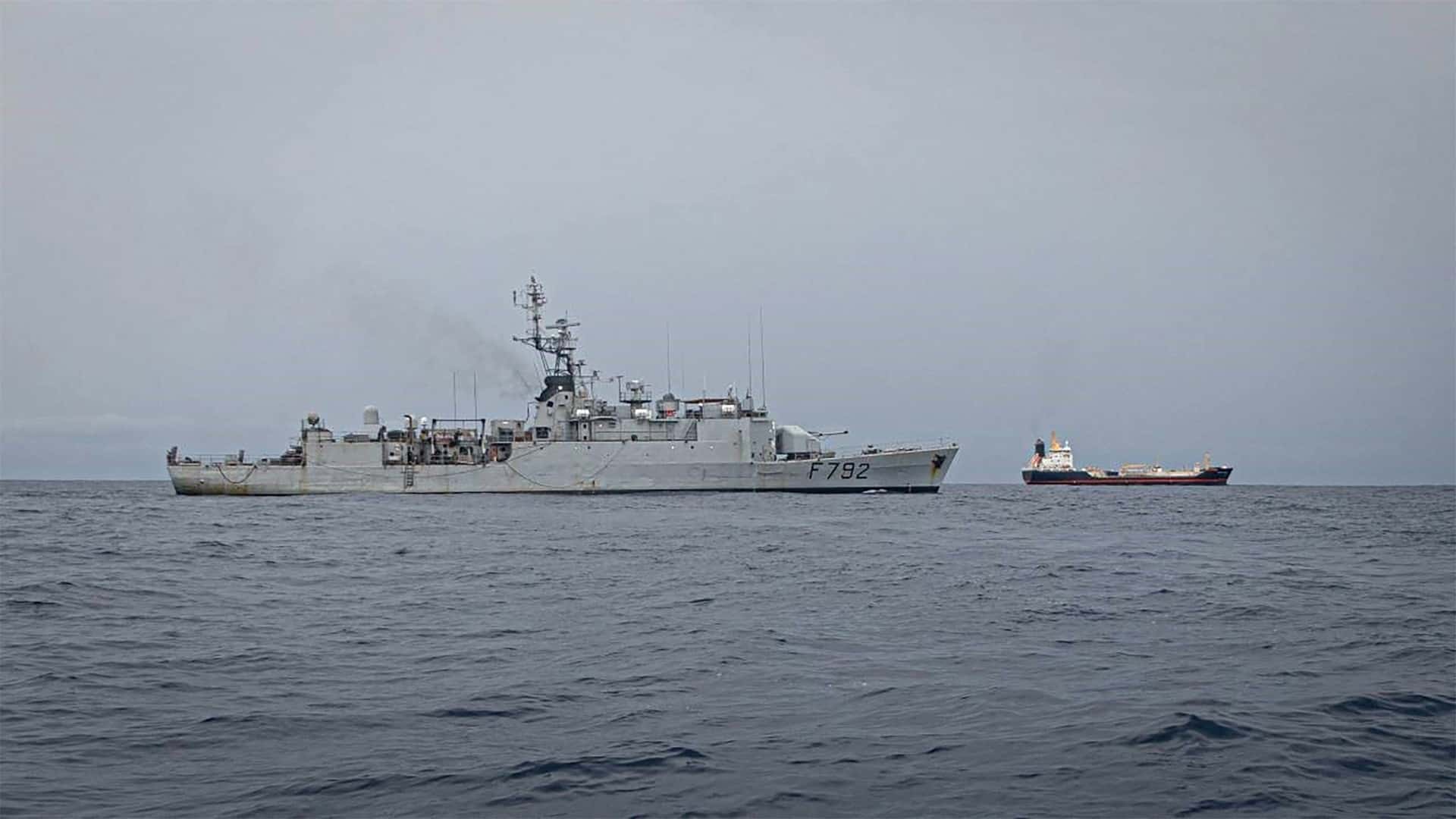DUBAI, UAE – The United States pushed on Tuesday to build up a multinational naval task force to protect a key global shipping lane from Yemen’s Houthi rebels, who pledged to keep up their attacks on cargo ships in the Red Sea.
The Iran-backed Houthis say their missile and drone strikes on passing container ships are in support of Palestinians in the Gaza war raging between Israel and Hamas since October 7.
US Defense Secretary Lloyd Austin condemned the “unprecedented” spate of attacks in waters leading to the Suez Canal, a chokepoint for about 10 percent of global trade, that have forced many shipping companies to divert their vessels.
The task force, which Austin first announced late on Monday, would include warships from the United States as well as Britain, Canada, France, Italy, the Netherlands, Norway and other countries.
The Pentagon chief, in Qatar on Tuesday after a visit to Israel, told a virtual meeting with 43 countries, the EU and NATO that the attacks “threaten the free flow of commerce”.
He urged other nations “to join US-led and other international initiatives… to restore security in the Red Sea to deter future Houthi aggression,” the Pentagon said.
The Houthis remained defiant and threatened to attack ships of any country that acts against them.
“Any country that moves against us will have its ships targeted in the Red Sea,” top Houthi official, Mohammed Ali al-Huthi, said in a televised interview with Iran’s Al-Alam television.
Earlier on Tuesday, the rebels pledged to continue the attacks in the Bab al-Mandeb strait, a vital shipping lane between Asia and Europe.
“Even if America succeeds in mobilizing the entire world, our military operations will not stop… no matter the sacrifices it costs us,” senior Houthi official Mohammed al-Bukhaiti said on X, formerly Twitter.
The Houthis will only halt attacks if Israel’s “crimes in Gaza stop and food, medicine and fuel are allowed to reach its besieged population,” said Bukhaiti.
Rebel spokesman Mohammed Abdul Salam said the “US-formed coalition aims to protect Israel and militarize the sea. Whoever seeks to expand the conflict must bear the consequences of those actions.”
Threat to global economy
Britain said the Royal Navy destroyer HMS Diamond had joined the US-led task force, dubbed Operation Prosperity Guardian.
“These illegal attacks are an unacceptable threat to the global economy… and are threatening to drive up fuel prices,” said UK Defense Secretary Grant Shapps.
Italy said it was sending the frigate Virgilio Fasan. And Spain said it would potentially also join, subject to “the decisions of the European Union and NATO”.
The Houthi rebels have launched more than 100 drone and missile attacks, targeting 10 merchant vessels involving over 35 different countries, according to the Pentagon.
On Monday, the Houthis claimed attacks on two more vessels, including the Norwegian-owned Swan Atlantic.
In November, the rebels seized the Galaxy Leader merchant vessel, taking its 25-member crew hostage. Both the vessel and crew remain in Yemen.
Difficult to intercept
Insurance costs have soared, prompting major shipping firms to reroute their vessels around the southern tip of Africa, despite the higher fuel costs of much longer voyages.
Four of the world’s biggest shipping companies — CMA CGM Group, Hapag-Lloyd, Maersk and MSC — have diverted their vessels, as has oil giant BP, in a move that sent up energy prices.
Denmark’s Maersk on Tuesday said “all vessels previously paused and due to sail through the region will now be rerouted around Africa via the Cape of Good Hope”.
But analysts say the maritime task force can do little to halt the attacks by the Houthis, who command an arsenal of ballistic missiles, cruise missiles and drones.
“The Houthis have an extended arsenal of different drones and missiles that they can shoot… and some of them will be difficult to intercept by your average navy ship,” Andreas Krieg, a professor at King’s College London, told AFP.
Torbjorn Soltvedt of risk intelligence firm Verisk Maplecroft said the “threat to shipping is also further increased by the group’s ability to deploy anti-ship mines and execute coordinated operations using boats and helicopters.”








